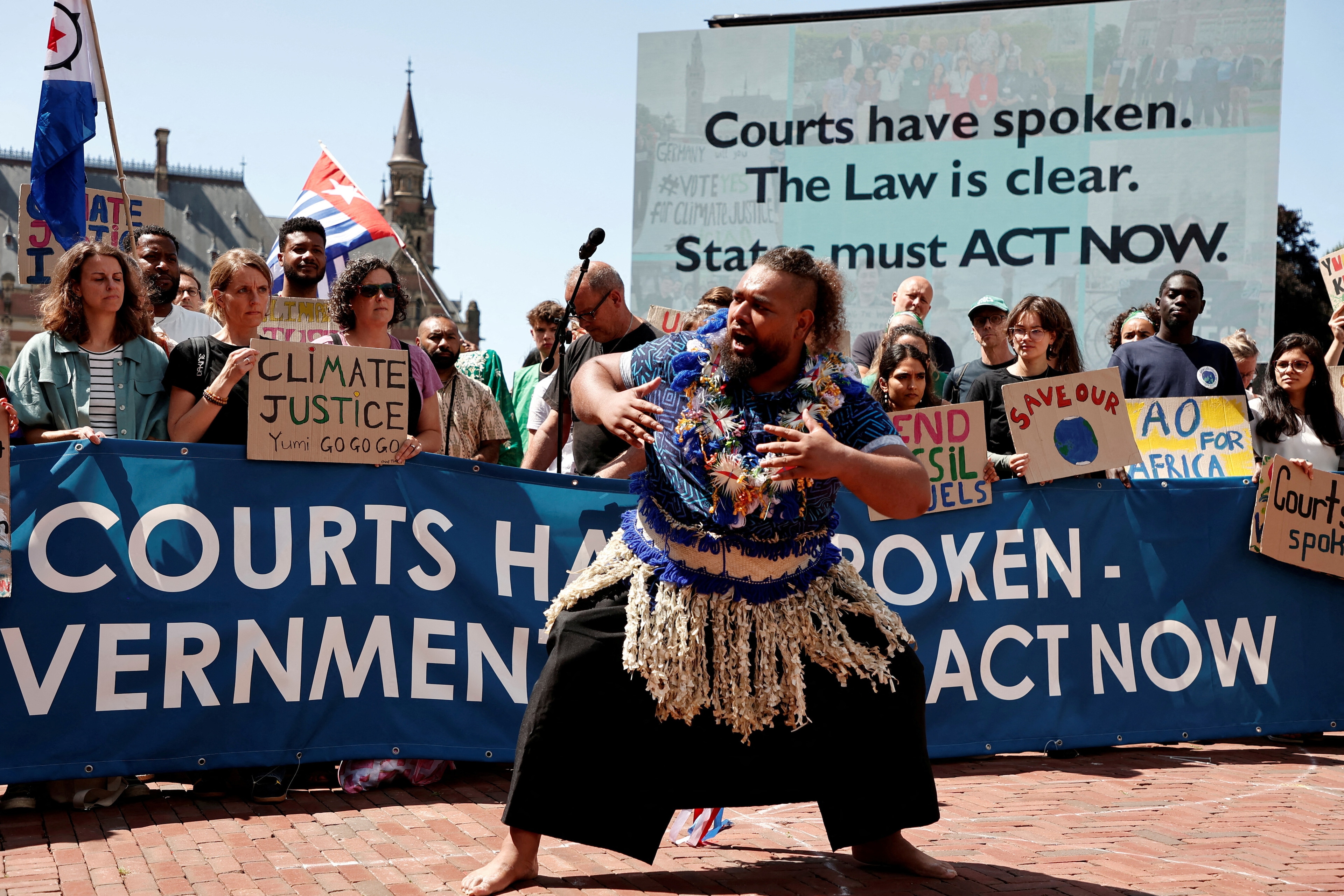Innovating for nature: Unlocking carbon markets for people, climate and the planet

"The world has been awakened for the call to immediate action."
Image: Unsplash/Spencer Watson
Stay up to date:
UpLink
- Natural Climate Solutions are a critical tool to mitigate climate change and support people and nature.
- Innovation is needed to build trust and transparency in Carbon Markets.
- The UpLink Carbon Market Challenge calls for innovative solutions that can help harness the potential of the carbon markets to unlock finance and technologies to support conservation, restoration and land management for people, climate and nature.
There is no denying that we are living in uncertain times. Beyond the disruptive and tragic effects of the COVID-19 pandemic, the world finds itself facing a crisis like no other in every corner of the planet; the accelerated destruction of nature and the impacts of climate change. Although these issues have often been regarded in silos, we cannot ignore that they are inextricably linked. As we continue to lose one football field of forest every second, global temperatures continue to rise, and over 1 million species are at risk of extinction by 2050, the world has been awakened to the call for immediate action.
Luckily, a critical answer to our problems is found in the very thing at risk: nature. Conserving and restoring ecosystems provides a critical tool to mitigate climate change and support people and natural ecosystems. Actions that increase carbon storage and avoid further emissions by conserving, restoring and improving land management across global forests, wetlands, grasslands and agricultural lands are known as Natural Climate Solutions (NCS). These powerful solutions can provide up to one-third of the cost-effective climate mitigation needed to keep global temperature increase under 2°C. In addition, conserving nature provides core benefits, such as improved water and air quality and helps frontline communities adjust to increased flooding and dry spells, benefit from improved mental and physical health, and realize job opportunities.
What are voluntary carbon markets?
How can we funnel much-needed funds into nature and tackle climate change?
But despite the undeniable potential, NCS activities are still severely underfunded. The recent State of Finance for Nature report found that investments in nature will have to triple by 2030 and increase four-fold by 2050 from the current investments of $133 billion. Forest-based solutions alone, including the management, conservation and restoration of forests, will require $203 billion annually, which is just over $25 per year for every citizen in 2021. Fortunately, net-zero commitments from the public and private sectors are gaining momentum, and in addition to deep decarbonization, corporations are seeking pathways to invest meaningfully in natural climate solutions. One tool in the climate action playbook to mobilize and ease these capital flows into high integrity NCS activities are voluntary carbon markets. If harnessed correctly, these carbon markets can enable them to turn their net-zero commitments into rapid and credible action, particularly in this transition phase.
However, although international carbon markets have been around for decades, several technical and conceptual hurdles, and various institutional failures, and poor experiences of past schemes have created a lack of confidence in how effective NCS and the carbon markets can be and how to best leverage them. As Nature and Net Zero report highlights, unlocking the full potential of NCS will require vital collaboration between different stakeholders to overcome these known barriers, ultimately strengthening carbon markets to ensure they can support climate and nature investment at scale. Building trust in the space will also need to be coupled with unprecedented levels of innovation – in terms of novel and scalable business models, approaches, tools and technologies.
To inspire and uplift “ecopreneurs” that will pave the way to a net-zero, nature-positive future, the World Economic Forum’s NCS Alliance and 1t.org are launching the first UpLink Carbon Market Challenge, in collaboration with Salesforce, to identify and help scale the best innovations available today.
The UpLink Carbon Markets Challenge - co-designed by a global, cross-sectoral team of experts and ecopreneurs representing diverse stakeholders in today’s carbon markets - calls for innovative solutions that can help harness the potential of the carbon markets to unlock finance and technologies to support conservation, restoration and land management for people, climate and nature. This includes catalytic business models, projects and/or activities that invest in and advance conservation and land/coastal management programmes (including forests, peatland, croplands, and coastal mangroves) and enabling tools such as geospatial, financial and collaborative platforms that can help bring trust, transparency, and legitimacy to the carbon markets.
The call for submissions will be open until 5 September. The top 10-20 solutions will be invited to a 4-month accelerator programme facilitated by the World Economic Forum and Partners with the aim to help the winning cohort gain visibility, attract partners and funding, and scale their solutions to accelerate their impact. Ultimately, this will help build public awareness, trust and transparency, collaborations, and more constructive dialogues around scaling and investing in NCS at this critical moment in time.
Previous UpLink Trillion Trees innovators such as Pachama and Ecosphere+ are attracting partners eager to embrace their technology-enabled tools that deploy carbon finance to support high-quality forest conservation and restoration projects. This UpLink Carbon Markets Challenge calls on many more ecopreneurs to bring forward novel and scalable business models, approaches, tools and technologies that can mobilize the $4.1 trillion funding gap. Nature has provided us with the inspiration, solutions and urgent call to action; innovators must now step in to accelerate our investments to combat climate change and deliver much-needed core benefits to nature and people.
For more information and to apply, visit UpLink.
Accept our marketing cookies to access this content.
These cookies are currently disabled in your browser.
Don't miss any update on this topic
Create a free account and access your personalized content collection with our latest publications and analyses.
License and Republishing
World Economic Forum articles may be republished in accordance with the Creative Commons Attribution-NonCommercial-NoDerivatives 4.0 International Public License, and in accordance with our Terms of Use.
The views expressed in this article are those of the author alone and not the World Economic Forum.
Related topics:
Forum Stories newsletter
Bringing you weekly curated insights and analysis on the global issues that matter.
More on Climate ActionSee all
Andrea Willige
July 30, 2025
Tom Crowfoot
July 30, 2025
Tom Crowfoot
July 30, 2025
Wee Kean Fong and Yvonne Zhou
July 29, 2025
Pranidhi Sawhney and Adam Skali
July 29, 2025




